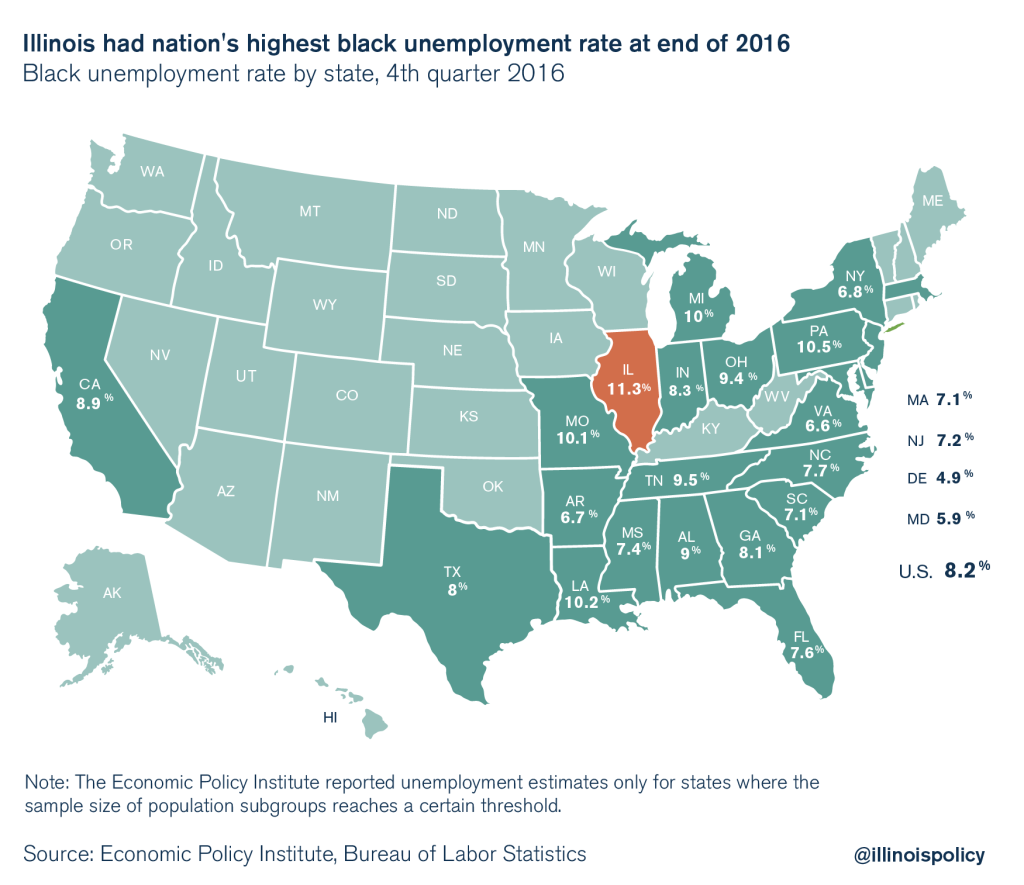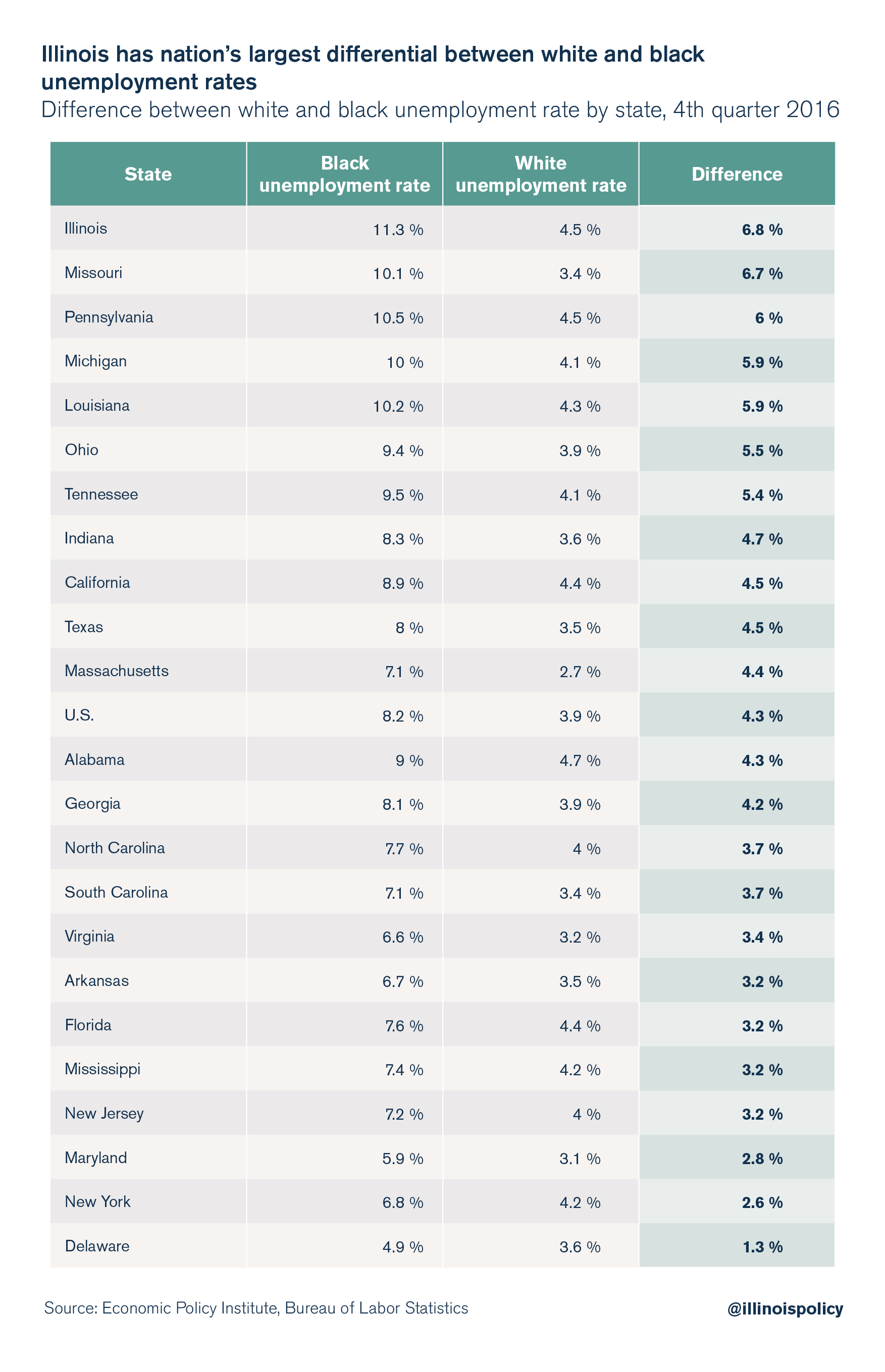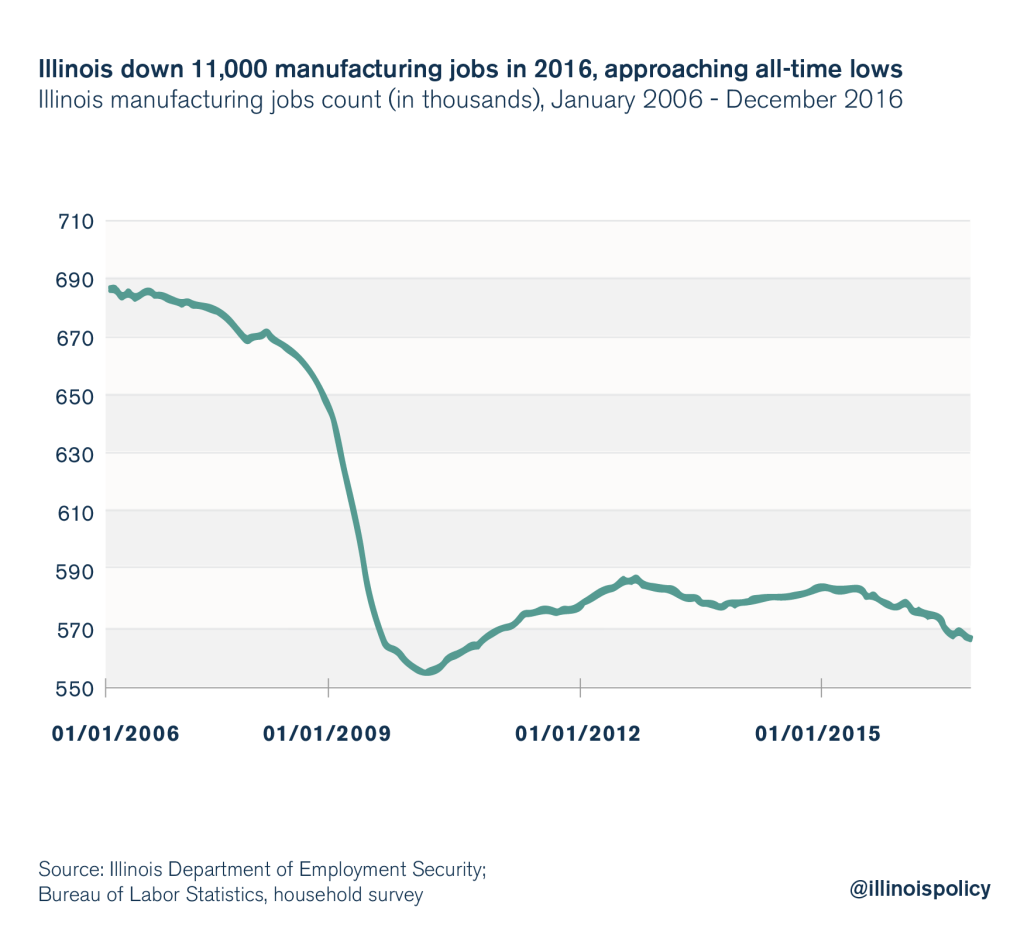Illinois ended 2016 with highest black unemployment rate of any state
Illinois had the highest black unemployment rate of any state at the end of 2016, holding that distinction for six consecutive quarters, according to analysis by the Economic Policy Institute. The Land of Lincoln also has the largest gap between its white and black unemployment rates.
Illinois is still home to the nation’s highest black unemployment rate, according to a new analysis from the Economic Policy Institute, or EPI. Illinois’ black unemployment rate is 11.3 percent, compared with the next highest state, Pennsylvania, at 10.5 percent. The data represent a reduction in the unemployment rate for Illinois, but also serve as a stark reminder that black people have a harder time finding jobs in Illinois than in any other state in the country.
The Land of Lincoln has had the highest black unemployment rate of any state since the second quarter of 2015. Illinois is a low-growth state, especially for industrial occupations, making it difficult for workers to find rewarding jobs in the local economy.
The difference between the white unemployment rate and the black unemployment rate is also greater in Illinois than in any other state. According to the EPI study, Illinois’ black unemployment rate is 11.3 percent, while Illinois’ white unemployment rate is 4.5 percent.

Chicago and Cook County are almost certainly exacerbating this problem by raising the minimum wage. Both have enacted ordinances to raise the minimum wage to $13 per hour over time and then tie increases to inflation. However, research points to negative employment effects of minimum wage hikes, especially for low-skilled workers and minority communities.
Cook County is home to 1.26 million of Illinois’ black residents, out of Illinois’ 1.89 million total black residents. That means that 2 of 3 black residents in Illinois will be affected by the minimum wage ordinances passed in Chicago and Cook County. These laws will effectively ban many job opportunities for young black men and women in the Chicago area.
A survey of minimum wage studies by the National Bureau of Economic Research found that minimum wage increases especially affect the least-skilled workers in the economy. In particular:
“[T]he studies that focus on the least-skilled groups provide relatively overwhelming evidence of stronger disemployment effects for these groups.”
Another cause of vanishing job opportunities in the black community is the decline in manufacturing jobs in Illinois. A July 2016 report from Illinois’ Commission on Government Forecasting and Accountability pointed to the weak manufacturing jobs recovery as one cause of Illinois’ comparatively high unemployment rate.
Illinois lost another 11,000 manufacturing jobs in 2016, the worst such loss in the region. Illinois’ recovery of manufacturing jobs after the Great Recession has also been the weakest in the region.

Reducing black unemployment in Illinois means addressing the underlying policy drivers that cause this problem.
Economic reforms, such as workers’ compensation reform, a property tax freeze, and repealing the minimum wage hikes in Chicago and Cook County would help encourage jobs growth and opportunity.
The black community would also benefit from the option to leave underperforming schools through a robust school choice program and education savings accounts.
